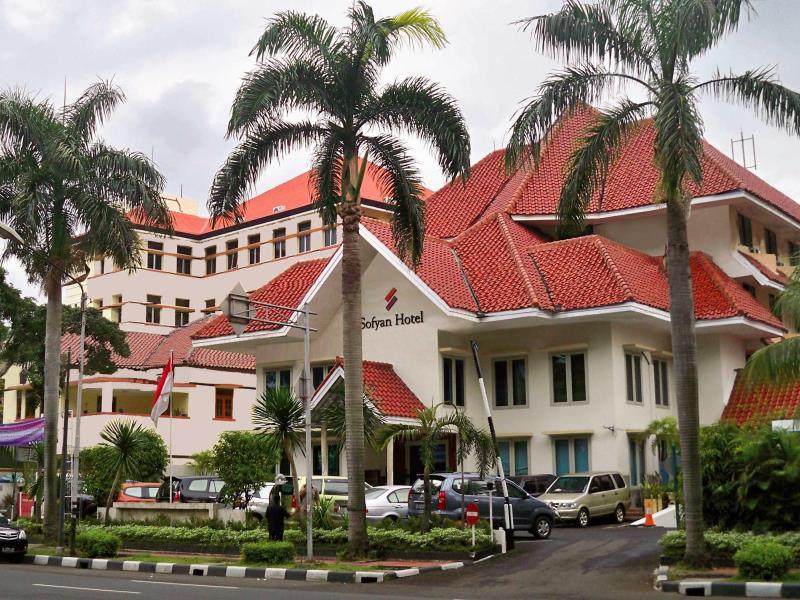How to get halal certification for your hotel in Indonesia
Photo: The Sofyan hotel chain is Shariah-compliant
The Indonesian government wants to attract 5 million foreign Muslim visitors a year by 2019 from around 2 million in 2014, and key players in the country’s travel and tourism industry are hoping that more ‘Shariah hotels’ will open doors to halal tourism opportunities.
Riyanto Sofyan, chair of the Indonesian Sharia Hotel and Restaurant Association, recently told Mi’raj Islamic News Agency that halal hotels can be quite profitable. Sofyan, owner of the Sofyan Hotel chain, said his firm’s sales have increased since the company began transforming its conventional hotels into Shariah-compliant ones over a decade ago. He added that each one of his hotels boasts a 70 to 80 percent occupancy on average.
How does a hotel in Indonesia open its doors to halal tourism opportunities?
Lukmanul Hakim is the director of LPPOM-MUI (Indonesia’s Assessment Institute for Foods, Drugs And Cosmetics, the Indonesian Council of Ulama), the commission in charge of issuing halal certifications. In an interview with Salaam Gateway, Hakim explained that halal certification for hotels is divided into two steps.
The first step only concerns kitchens: ingredients, preparation and service.
The second certification, issued by the National Shariah Board of Indonesian Ulama Council (DSN-MUI), is focused on all aspects of a hotel: food, rooms, services, facilities and more.
HALAL RESTAURANT CERTIFICATION
"The application for Shariah hotels is divided into two steps, but under my coordination we're currently making an online application that allows the applicant to obtain the two certifications at the same time," says Hakim.
For the time being, however, the process remains twofold. Before proceeding to Shariah Hotel Certification, a hotel’s kitchen must first earn a Halal Assurance System (HAS) from LPPOM-MUI. To do so, Hakim says a halal kitchen must fulfill LPPOM-MUI’s requirements: use halal ingredients, serve food according to halal standards and no contamination of food with haram products.
The registration of HAS can be completed online at www.halalmui.org or www.e-lppommui.org.
RELATEDHow to get halal-certified in Indonesia: COO of Starbucks and Burger King retailer |
SHARIAH HOTEL CERTIFICATION
According to Ministry of Tourism and Creative Economy Regulation No. 2 of 2014, Shariah hotel businesses are classified into two types:
- The first is Shariah Hotel Hilal-1, the classification for Shariah hotels that fulfill all the criteria required to serve the ‘minimal’ needs of Muslim travelers.
- The second is Shariah Hotel Hilal-2, for Shariah hotels that fulfill the criteria required to serve the ‘moderate’ needs of Muslims.
Shariah hotel certification is based on DSN–MUI’s assessment of the hotel’s products, services and management, which determines a hotel’s level.
Shariah Hotel Hilal-2 has more stringent requirements than Shariah Hotel Hilal-1. There are 24 elements and 74 sub-elements to be fulfilled by Level 2, while Level 1 consists of just 16 elements and 49 sub-elements.
Hakim says the criteria are not that difficult to fulfill. Aside from the Halal Assurance System for your kitchen, Shariah hotels in Indonesia may only accept legally married couples to stay in a room together, and they must provide proof of marriage. Same-sex friends traveling together are permitted to stay in the same room, but opposite-sex friends may not. Homosexual couples are not allowed to room together, as per Indonesia’s Islamic conservatism on the matter. However, there is most often no way that a hotel can know if two people of the same sex are a couple.
Halal hotels must prepare the qibla direction and a prayer rug in each room. As for spa services, therapists must be the same gender as the guests.
Application for certification starts by registering with the DSN-MUI, which will then conduct a Shariah business guidelines audit and assign the audit results. After the audit process, DSN-MUI will report the result to the Executive Committee Board of Indonesian Ulama Council (BPH-MUI). Lastly, BPH will make a recommendation to the DSN-MUI to issue the hotel a Shariah certification.
“It takes around 75 days for Halal Assurance System certification as well as Shariah hotel certification. As for the fee, the Halal Assurance System costs around ... 5 million rupiah (under $400), excluding the auditor’s fee, and Shariah hotel certification cost is also similar to that number. The certificate has to be renewed every two years,” Hakim says.
© SalaamGateway.com 2016

Keimmy Xu